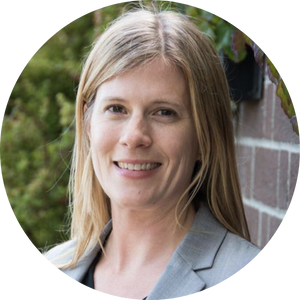This updated fourth edition of Feeding Ourselves Thirsty provides investors with guidance and relevant data for evaluating the water risk management of publicly held companies in the Agricultural Products, Beverage, Meat, and Packaged Food industries, collectively referred to as “the food sector” throughout. It also tracks these companies’ progress on assessing, disclosing, and managing their water risks.
This analysis can also help food companies more effectively manage their water risks, which is critically important to their bottom lines. With the intensifying negative effects of climate change placing an unprecedented strain on our world’s water supply and quality, along with steadily increasing demand for water-intensive goods from a rising global population, companies must evaluate, manage, and mitigate their water risks in order to offer competitive returns to their investors over the long term.
As in the 2015, 2017, and 2019 editions, Feeding Ourselves Thirsty 2021 guides investors and companies through the key water risks facing these industries and features:
- A unique dataset ranking 38 major food companies on the quality of their water risk management
- An analysis of how company performance has changed across key indicators since prior rounds of benchmarking in 2019, 2017, and 2015
- A comprehensive summary of key trends across the food sector, including opportunities for substantive positive impact
Companies are assessed on a 0-to-100 points basis across four key categories of water risk management:
- Governance and Strategy
- Water Risk Assessment
- Target Setting
- Implementation Support
Learn more about the methodology for this report, including the specific categories and indicators used to evaluate company performance.
 |
Kirsten James Program Director, Water |
Kirsten James directs Ceres' strategy for mobilizing leading investors and companies to address the sustainability risks facing our freshwater and agriculture systems. Previously, Kirsten served for five years as the director of California policy and partnerships at Ceres, where she led strategy development for our California-focused policy work, engaging companies and investors in support of public policies that call for sustainable water management, clean energy, and greenhouse gas emissions reductions in California.
Kirsten has been a regular blogger in publications such as Water Deeply, providing commentary on water policy and corporate water stewardship. In her personal capacity, she serves as an executive board member on the Los Angeles League of Conservation Voters and a committee appointee for the Los Angeles County Safe, Clean Water Program.
Prior to Ceres, Kirsten worked for nine years at the Santa Monica-based environmental group, Heal the Bay, as their Science and Policy Director. She graduated with a bachelor’s degree from Northwestern University and a master's degree in environmental science and management from the Bren School at University of California Santa Barbara.
 |
Beth Hooker, Ph.D. Senior Manager, Water and Agriculture Resilience |
Beth Hooker works to advance corporate goals and practices to steward freshwater resources, with a focus on the agricultural supply chains of food sector companies. Her work includes managing the Ceres AgWater Challenge corporate commitment platform. She also leads the development of tools and research, such as corporate benchmarking to advance water outcomes. Her work leverages partnerships between industry, investors, scientists, and non-profit advocacy organizations to address crucial factors in managing our freshwater resources.
Beth brings her professional background in agroecology, freshwater resources, and soil science to her role, in addition to specific expertise around mitigating the impact of agriculture on aquatic ecosystems, promoting carbon sequestration in soils, and advancing regenerative practices across a wide-range of agricultural approaches. Prior to joining Ceres, Beth worked in higher education, teaching environmental science and providing institutional sustainability leadership at Mount Holyoke and Hampshire Colleges. As director of Food, Farm and Sustainability at Hampshire College, Beth managed a 100-acre integrated educational and production organic farm, and led numerous projects to promote regional food resiliency, sustainable practices, and on-farm clean energy technologies.
Beth earned a M.S. in soil science and a Ph.D. in ecosystems ecology from the University of Connecticut, where she conducted research on the environmental impacts of agriculture, with a focus on understanding soil carbon sequestration under different long-term agricultural management regimes. Beth graduated from Connecticut College, with a dual major in chemistry and Asian studies.
 |
Daniel Shepard Associate, Water and Agriculture Resilience |
As part of Ceres' Water and Agriculture program, Daniel works to mobilize food and beverage companies to address water risks in their agricultural supply chains. In this role he conducts research to improve investors' and companies’ understanding of the financial risks associated with global water stress and supports shareholder engagement focused on water, climate, and agriculture. Daniel has also engaged with companies directly through the Ceres AgWater Challenge to encourage companies to adopt sustainable agriculture principles with an emphasis on soil health.
Daniel joined Ceres in 2019 after completing a bachelor's degree at Princeton University in political philosophy and environmental studies. Daniel developed his interest in sustainable agriculture and environmental issues growing up on an off-grid permaculture farm in rural Wisconsin. Daniel also has experience working in an international context for Tostan, a human rights-based community empowerment NGO headquartered in Dakar Senegal. Daniel’s current academic interests lie at the intersection of ethics and the environment and his leisure activities include spending time outside and juggling!
 |
Katherine Isaf Senior Associate, Water and Agriculture Resilience |
Katherine Isaf works to protect freshwater systems, with a focus on influencing the largest food and beverage companies to improve the sustainability of their sourcing policies and practices. In this role, she supports Ceres’ water and agriculture resilience programs, including the biannual benchmark, Feeding Ourselves Thirsty, and the Ceres AgWater Challenge corporate commitment platform.
Katherine comes to Ceres with a background in international development and water security. Before Ceres, Katherine worked as a consultant to the Valuing Water Initiative with the Government of the Netherlands. She was also involved in the creation and management of a sanitation design organization dedicated to amplifying more diverse voices and inclusive innovations in water, sanitation, and hygiene (WASH).
Katherine has a master’s degree in International Land and Water Management from Wageningen University, with a specialization in irrigation and water resources, and a bachelor’s degree in International affairs from the Georgia Institute of Technology.
To date, Katherine has lived and worked in six countries, including Nicaragua, Jordan, and the Netherlands. She continues to volunteer as a board member for the sanitation startup, Wish for WASH, and she recently spent a year working as a chef in a vegan kitchen and bakery outside of Atlanta.
Contact Us
Please direct any questions about Feeding Ourselves Thirsty to Kirsten James at [email protected].
Acknowledgements
This report is made possible by the generous support of the following foundations: Park Foundation, McKnight Foundation, Turner Foundation, and The Walton Family Foundation. The opinions expressed in the report are those of the authors and do not necessarily reflect the views of the sponsors. We would also like to acknowledge the invaluable support and contributions of our analyst partners at Sustainalytics, our coops Martina Silberman and Kristen Chen, as well as Joelle Young, and the entire Ceres communications team.



